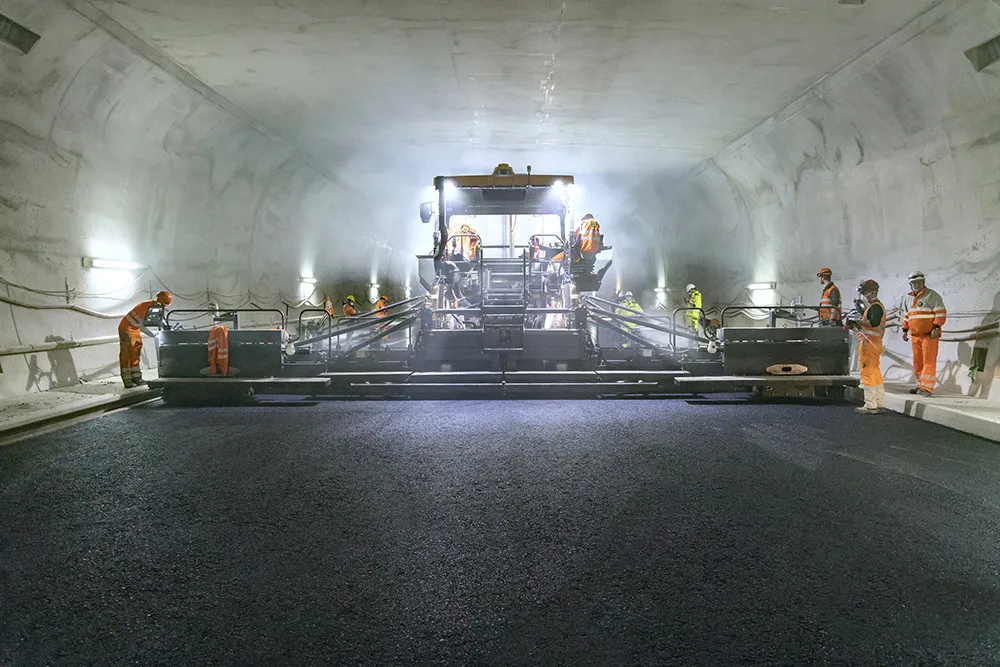Wirtgen claims that its new W 380 Cri cold recycler is highly sophisticated and productive. The machine can carry out cold recycling duties for widths of 3.2m, 3.5m and 3.8m, typically working to depths of 100-330mm. The company claims that this machine can be used to repair damaged road stretches quickly and effectively, providing a quality finish while minimising the need for materials transportation to and from the site by 90%. This process is said to be energy saving, allowing the saving of 10-12litres of fuel/tonne of materials, as well as reducing the need for binders by 50%.
The machine uses the proven cold recycling process, recycling surface and base course material, as part of a recycling train across the entire width of the pavement in a single pass. The machine is used to granulate road material and transform it into a new, homogeneous material mixture by adding binding agents such as cement, bitumen emulsion, or foamed bitumen. It can remove an asphalt surface either in full or in layers to suit the road condition. With a mixing capacity of up to 800tonnes/hour, the cold recycler can feed recycled material to an asphalt paver through its rear-mounted swivel-mounted and height-adjustable discharge conveyor, or the recycled material can be left on the ground for windrowing.
Wirtgen’s tracked recyclers use the down-cut process when recycling, with the milling and mixing rotor rotating in sync. The firm claims that this method allows the user to selectively vary the particle size of the material being processed.
In addition to the W 380 Cri model with its Stage V/Tier 4 Final compliant diesel delivering 775kW, there is also the Tier 2 compliant W 380 CR for use in non-regulated markets. The new generation of Wirtgen recyclers also includes the W 240 Cri, which also has a 775kW diesel meeting Stage V and US Tier 4 Final requirements, as well as the W 240 CR variant for non-regulated markets with a 708kW, Tier 2 compliant diesel.
The W 240 CRi and W 240 CR recyclers can also be equipped with integrated Vögele AB 375 T variable screeds and have a maximum working width of 2.35m.








